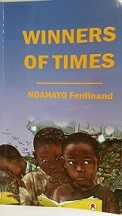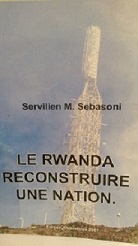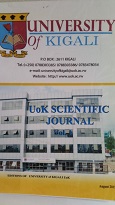Sneak preview: Rwanda collection
 The yearly acquisition trips to Africa undertaken by the ASCL library staff are very important for ensuring the diversity of the collection. Currently, about 50 percent of the new acquisitions are from Africa. Last year, COVID-19 prevented us from travelling, but this year we were able to go to Rwanda, a country never visited before (see here for a list of countries visited in the past). The ASCL Rwanda collection comprises around 180 books and journals published in Rwanda. This is very limited in comparison to the roughly 1200 publications on Rwanda in our collection that were published elsewhere, mostly in Western countries. With this trip, we hoped to double, maybe even triple our Rwanda collection. In fact, we returned with around 600 items, books, journals, a collection of newspapers, and a number of films on DVD. A small number of these are intended for the library of Leiden University’s department of linguistics. In addition, we acquired textbooks and illustrated children’s books in Kinyarwanda on behalf of the German Georg Eckert Institute for International Textbook Research. It is estimated that more than 500 items will be added to the ASCL collection, so our goal has been reached.
The yearly acquisition trips to Africa undertaken by the ASCL library staff are very important for ensuring the diversity of the collection. Currently, about 50 percent of the new acquisitions are from Africa. Last year, COVID-19 prevented us from travelling, but this year we were able to go to Rwanda, a country never visited before (see here for a list of countries visited in the past). The ASCL Rwanda collection comprises around 180 books and journals published in Rwanda. This is very limited in comparison to the roughly 1200 publications on Rwanda in our collection that were published elsewhere, mostly in Western countries. With this trip, we hoped to double, maybe even triple our Rwanda collection. In fact, we returned with around 600 items, books, journals, a collection of newspapers, and a number of films on DVD. A small number of these are intended for the library of Leiden University’s department of linguistics. In addition, we acquired textbooks and illustrated children’s books in Kinyarwanda on behalf of the German Georg Eckert Institute for International Textbook Research. It is estimated that more than 500 items will be added to the ASCL collection, so our goal has been reached.
Genocide
The genocide of 1994 is still very present among the titles on display in Rwanda’s bookshops: academic studies; local histories; testimonies; autobiographies of survivors; and documentaries testify that this traumatic event is prominent in the minds of people. Other topics are religion (Christianity and Islam), politics, economics as well as literature (prose, poetry, drama) and motivational literature.
Language
Another feature that stands out is the language in which publications are written: in 2003, English became an official language, alongside Kinyarwanda (spoken by 99 per cent of the population) and French. In 2010, English replaced French as the only language of instruction in public education, but French is still used in some of the many private schools and institutions of higher education. Consequently, we found several books published simultaneously in English and/or French, and Kinyarwanda.

Édouard Bamporiki
An example is the book written by Édouard Bamporiki, My son, it is a long story : reflections of genocide perpetrators, which was also written in Kinyarwanda: Mitingi jenosideri : imbundo, imbarutso y’imbunda yarimbuye imbaga. Édouard Bamporiki is an award-winning filmmaker, actor, writer, advocate and politician, and currently Minister of State of the Ministry of Youth and Culture. Bamporiki became known in 2009 for his film Long Coat. Long Coat focuses on the difficulty of leaving one's past behind and tells the story of a genocide survivor as well as a perpetrator's son who has to deal with his dramatic past. Édouard Bamporiki also starred in the film Kinyarwanda.
Sneak preview
Some more items acquired in Rwanda that are already available:
Le Rwanda : reconstruire une nation / Servilien M. Sebasoni 
Winners of times / Ferdinand Ndahayo

My name is Life / Karen Bugingo
Trésors du Burundi ancestral / Miganda, Perpétue
We survived : genocide in Rwanda : 28 personal testimonies / Whitworth, Wendy, ed.

UoK Scientific journal / University of Kigali
Miracle and the family / a film by Gasigwa Léopold
Read the report of the acquisition trip to Rwanda.
Beginning next year, the library will organise an exhibition of the new Rwanda collection.
Elvire Eijkman

